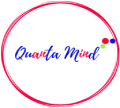As corporate professionals, we find ourselves carrying the legacy of our ancestors—both their strengths and their struggles. Our ancestors developed certain patterns and beliefs that were crucial for their survival in their time. However, it is essential for us to ask ourselves: Why are we still carrying these limiting ancestral beliefs and patterns today? What do we gain from reliving our ancestral traumas, whether in the workplace or our personal lives? And most importantly, is it worth it?
Healing Our Ancestral Roots: Redefining Success in the Corporate World
“It is not just personal development that can change us, it is personal, ancestral, and collective development that can bring transformation to our lives.”
In our pursuit of personal growth and development, we often focus solely on acquiring skills and knowledge to excel in our chosen fields. However, there is a hidden connection that goes beyond personal development. It is the influence of our ancestral roots and the beliefs ingrained in us by generations before us. This unexplored connection holds immense power in shaping our career and personal lives. In this blog, we will dig into the intricate relationship between ancestral beliefs and how we behave in our professional life, exploring how our lineage influences our mindset, choices, and behaviors in the corporate world.

Corporate life which is often full of stress, meeting deadlines and competition motivates us to move towards personal development to slow down and to look for ways to release stress in life. Even the Human Resource departments of organizations, make sure to have plenty of retreat days, trips, or self-development exercises for the employees of the organization. While personal development often takes center stage, it is essential to recognize the powerful influence of our ancestral lineage and the beliefs passed down through generations, on our daily life. These unseen forces can shape our professional journeys, either propelling us forward or becoming obstacles on our path to achievement. And most of us, do not give it importance.
Let’s uncover the hidden layers beneath the surface and explore the impact of ancestral beliefs in the corporate world.
Ancestral Patterns:
It is important to recognize that the negative attitude of one employee can lead to a chain reaction and other employees can begin to display the same behaviors, resulting in a toxic work environment. Due to these negative internal beliefs, we may also begin to blame the organizations we work for, become angry and resentful towards our work. Our ancestral patterns can show up in our professional life in one of the following ways:
- I have to work hard to earn respect and recognition. This is an ancestral limiting belief, that our value depends upon productivity and accomplishments, and we need to consistently prove our worth to others. Our ancestors used to believe that the more we serve and the harder we work, the more we will be valued in the society. Additionally, it may signify a scarcity mindset, assuming that praise and rewards are limited resources, not readily available to all in this world, so we should expect rewards only in the afterlife.
- I need to compete with others in order to achieve success in the work place. This belief comes from the perspective that success is like a game where there can only be one winner, and we must outshine or do better than others to come out on top. It may also show a fear of being left behind or losing our position or sense of safety. And when we operate from this mindset in the workplace, then it leads to more stress, frustration, anxiety and a constant pressure to do more. We can even loose our creativity when we focus on competing with others all the time.
- I must do everything possible to prevent mistakes and failures. This is another ancestral limiting belief that mistakes and failures are disgraceful and not tolerated, and that we need to attain perfection or flawlessness to be deserving. One possible reason why our ancestors tell us to be perfect and not to make mistakes is that they want us to avoid the pain and suffering that they experienced or witnessed as a result of their own or others’ imperfections and mistakes. For example, according to an online article, some of our ancestors may have lived through events such as war, famine, disease, oppression, or persecution, which could have been caused or exacerbated by human errors or flaws. They may have also faced harsh consequences or punishments for their mistakes, such as losing their land, their freedom, their reputation, or their lives. Therefore, they may have developed a belief that being perfect and not making mistakes is the only way to survive and thrive in a hostile and uncertain world.
Another possible reason why our ancestors tell us to be perfect and not to make mistakes is that they want us to achieve the goals and dreams that they could not or did not pursue or accomplish themselves. For example, according to another online article on ancestral healing, some of our ancestors may have had unfulfilled aspirations or potentials that were limited by their circumstances, such as lack of education, opportunity, resources, or support. They may have also faced barriers or challenges that prevented them from expressing their true selves, such as social norms, expectations, or pressures. Therefore, they may have developed a belief that being perfect and not making mistakes is the only way to succeed and be happy in life.
- It is necessary to satisfy everyone and prevent conflicts. This belief may arise from the ancestral perspective that we must comply to the expectations and viewpoints of others, in order to prevent any form of upset or offense. It may also indicate a fear of jeopardizing our relationships or sense of belonging. So instead of placing an emphasis on open communication our ancestors send us information to prevent conflicts by agreeing to what the others are saying.
- I must handle everything on my own and refrain from seeking assistance. This belief limits us and our potential. There is shame attached to this belief, that tells us that it is weak to ask assistance and that we must be self-sufficient and reliant, responsible for managing everything independently. It may also reveal a fear of appearing vulnerable or inadequate, as well as a lack of trust in the intentions or capabilities of others. In the corporate world, this belief may lead to a feeling of being over worked, overburdened and kills the spirit of collaboration.
- I must limit myself to the familiar and avoid exploring new opportunities. Our ancestors may like to be within their comfort zone, avoiding risks, and strictly following the established rules and norms of our culture or profession. If we have this belief in the workplace then it may keep us resistant to change, and there can be a lack of curiosity or creativity in our work.
- I must be satisfied with what I have and avoid aiming for greater things. This belief is limiting and may arise from our ancestral belief pattern that the only way to practice gratitude and find contentment in our current situation is to accept our limitations and circumstances as they are. When we follow this limiting belief in our workplace, we may experience lack of ambition and confidence.
- I must hide my authentic self and refrain from expressing my emotions. Our ancestors were not always expressive about their feelings and emotions. It is possible that we carry their limiting belief that we should avoid standing out, leading us to suppress our genuine feelings and personal needs. In the workplace this limiting belief may show up as always not able to speak up for our self or low self-worth.
- Following the leader without questioning is necessary. This belief may come from the ancestral belief that the only way to show respect to those in authority is to comply with those in positions of authority, while refraining from challenging them. In the workplace, this may manifest as a fear of conflict, or a lack of independent thinking or proactivity.
- My focus should be on passion, not just money. This belief may arise from the understanding that pursuing our true passion brings fulfillment and joy, and we can sacrifice money if we are fulfilling our passion. Overcoming this belief requires embracing abundance and trusting that following our passion can lead to both personal fulfillment and financial prosperity. It invites us to seek a harmonious balance between our passions and our practical needs, allowing us to live a life of purpose and meaning.
All these limiting ancestral beliefs impact our work life negatively and result in stressful situations such as:
- cut-throat competition,
- sacrificing well-being for success,
- struggling to be recognized,
- self-sabotaging tendencies,
- Being submissive,
- Hating or disliking a colleague due to their ethnic background or color of their skin
- the quest for constant validation, and
- struggles with impostor syndrome.
These patterns, deeply ingrained in our ancestry, can create toxic work environments that hinder collaboration and drain energy. Similarly, in our personal lives, ancestral patterns may repeat themselves, leading to unresolved conflicts and deep-seated fears.
Challenge the Patterns
However, these beliefs that our ancestors tell us may not be helpful or healthy for us in the present. They may create unrealistic standards and expectations for ourselves and others. They may also prevent us from learning, growing, and innovating from our mistakes, which can limit our creativity, curiosity, and resilience. They may also hinder us from accepting and appreciating ourselves and others as we are, which can damage our relationships and well-being.
Therefore, we may need to question and challenge these beliefs that our ancestors tell us and find values that are more aligned with our reality and goals. We may need to recognize that being perfect and not making mistakes is impossible and unnecessary for us to live a meaningful and fulfilling life. We may need to embrace our imperfections and mistakes as part of our humanity and as opportunities for improvement and transformation. We may need to cultivate a mindset of compassion and gratitude for ourselves and others, regardless of our flaws and failures.
Paradigm Shift:
Our ancestors developed patterns and beliefs that were crucial for their survival in their time. However, the question arises: Why are we still carrying these limiting beliefs and patterns in our lives today?
- Are these patterns truly benefiting us?
- Are they bringing us the fulfillment and happiness we seek?

It’s time for a paradigm shift, where we challenge the notion that success requires sacrificing well-being or stepping on others. By consciously examining and questioning the limiting beliefs and patterns we inherit, we can break free from the chains of ancestral traumas and redefine success in life fostering collaboration, empathy, and holistic growth.
By acknowledging and healing our ancestral wounds, we pave the way for a brighter future, both for ourselves and future generations.
Supporting Employees in their Ancestral Healing Journey:
Organizations have a vital role to play in supporting their employees’ development. By acknowledging the impact of ancestral beliefs and traumas on personal and professional development, companies can create an environment that promotes growth, well-being, and fulfillment.
Here are some ways organizations can support their employees in this transformative process:
Questions to Ask
- Why did you get started in this line of work?
- What effects does the work have on you?
- What would you like to change about the way you work or interact with others at workplace?
- What do you do after a particularly difficult day at work?
- How do those close to you, namely your family and friends, think your work affects you?
- What do you think about competition at workplace?
- What is your definition of success?
- What do you think of your co-workers?
- What do your co-workers think of you?
- Do you dislike any race/nationality or have bias against them?
Engage employees in individual or group activities centered around these questions. For instance, employees can be encouraged to reflect and write down their answers as a self-assessment measure. It is crucial for organizations to respect employees’ privacy rights when implementing these activities. If survey responses are collected, employees should have the option to submit them voluntarily and anonymously. Employers can use aggregated data or other methods to summarize results at the group level. Participation in group discussions on ancestral limiting beliefs and trauma should also be voluntary, ensuring that employees feel secure and not at risk of job repercussions for disclosing their experiences with ancestral trauma.
Develop a Culture of Psychological Safety:
Promote an inclusive and supportive work culture that encourages employees to openly discuss their personal journeys, including their ancestral heritage and any discrimination or racism faced by them, with the Human Resources department. Encourage an environment of open dialogue, empathy, and understanding, ensuring that individuals feel safe and are free from judgment or stigma regarding their experiences and emotions.
Provide Education and Resources:
Offer educational programs, workshops, and resources that help employees understand the connection between ancestral beliefs and personal development. Bring in experts or facilitators who can guide employees through the process of exploring their ancestral roots and healing.
Offer Employee Assistance Programs:
Introduce employee assistance programs aimed at offering counseling and therapy services to support individuals on their healing journey. These programs are specifically designed to help employees address and cope with emotional challenges related to ancestral traumas.
Encourage Self-Reflection and Personal Development:
Encourage self-reflection practices like mindfulness, journaling, or meditation to facilitate employees in exploring their ancestral history and beliefs. Promote personal development initiatives that prioritize not just skill acquisition, but also self-awareness and healing.
Provide Mentorship and Support Networks:
Create mentorship programs or support networks within the organization to facilitate connections between employees who have experienced or are currently undergoing ancestral healing. These networks offer a safe and supportive environment for sharing experiences, seeking guidance, and building a strong sense of community.
Incorporate Ancestral Healing Practices:
Consider integrating ancestral healing practices into workplace initiatives. This can include rituals, ceremonies during retreats or workshops that allow employees to honor their ancestors, release ancestral burdens, and set intentions for personal and professional growth.
Lead by Example:
Encourage leadership to actively contribute to creating a supportive environment by sharing their personal experiences with healing and embracing vulnerability. When leaders take steps towards their own healing, they inspire and motivate employees to embark on their healing journeys as well.
Offer Flexibility and Work-Life Balance:
Recognize that ancestral healing is a deeply personal process that may require time and space. Offer support to employees who may need additional resources or company’s support in going for their healing or need support in recognizing their patterns.
Cultivate Mindfulness
Cultivating mindfulness is a way to gently guide us back to the present moment. Eventually, it may allow employees to find quiet in an otherwise stressful day, notice and slow down their racing thoughts, and with each pause they can attend to the consequences of enacting our ancestral limiting patterns.
By implementing these strategies, organizations can create a workplace environment that values and supports employees’ ancestral healing journeys. This not only benefits individuals on a personal level but also contributes to a more engaged, fulfilled, and harmonious workforce as a whole.
Ending Note:
Our ancestors faced immense challenges, adversity, and trauma. To survive in their time, they developed specific patterns and beliefs that helped them navigate their world. However, as the world has evolved, it is crucial for us to question and examine why we still carry these patterns that may unknowingly hinder our progress and limit our potential. Carrying the weight of ancestral trauma can create cycles of pain and prevent us from reaching our true potential.
At the end of the day, ancestral trauma is not something we can walk away from. Whether you are an individual working for a large organization or the boss of a two-person team, remember that though addressing the ancestral beliefs is a complex process, we can all do our part to bring awareness to the issue and begin to implement changes to address it. Cultures don’t change through a single workshop (or toolkit). Organizations must stay committed to this issue. Build awareness. Hold themselves accountable.
Through conscious examination and questioning of the limiting beliefs and patterns we inherit, we can liberate ourselves from the chains of ancestral traumas and step out of the ancestral trauma. We have the power to redefine success in the workplace and our personal lives. Collaboration, empathy, and holistic growth can replace toxic work environments, and healthy relationships based on love, compassion, and growth can flourish. By healing our ancestral wounds, we pave the way for a brighter future for ourselves and future generations.



